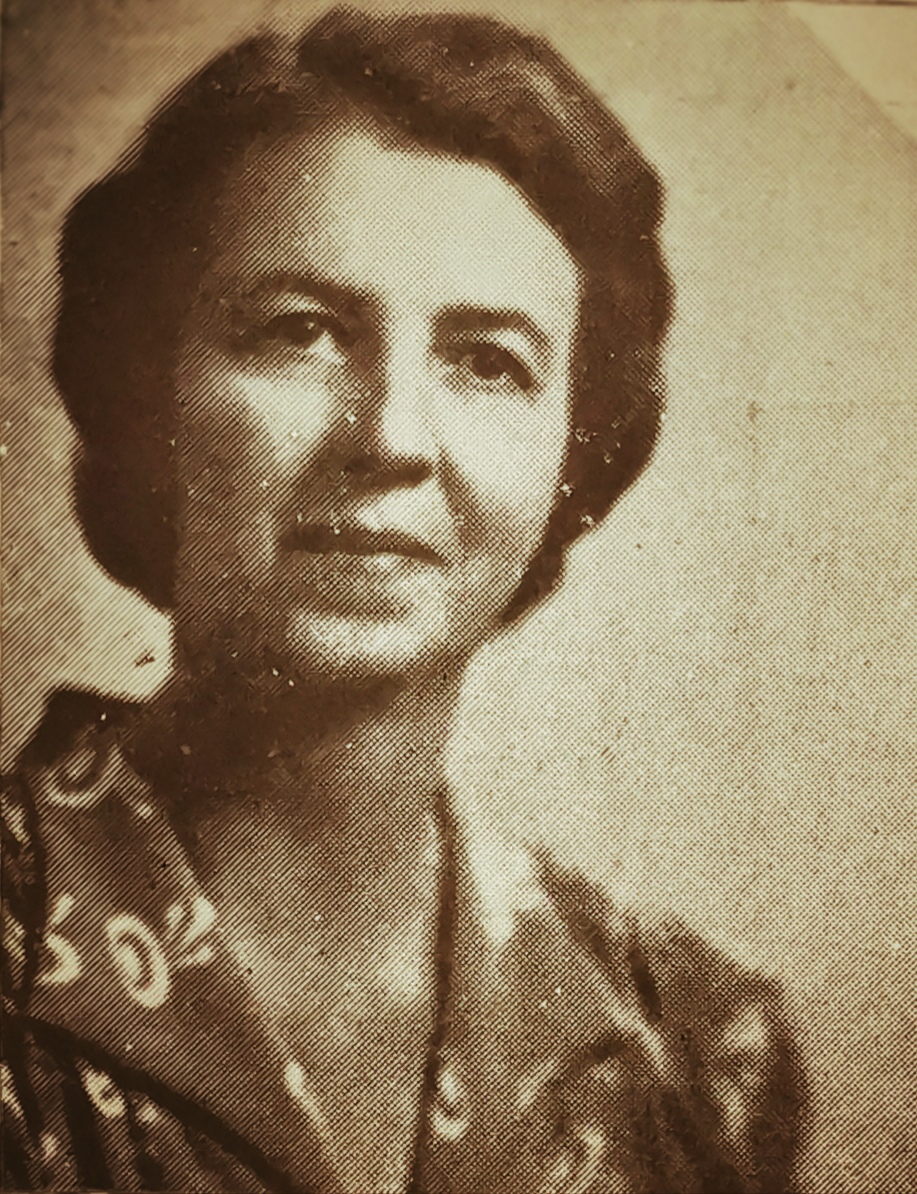By Francis Neil G. Jalando-on

Coggins’ commitment to the Lord has raised many Filipino Christian young leaders.
May Angeline Coggins was the Chairperson of the Faculty Council of Central Philippine College during the years 1946-1947. The Faculty Council was created as an emergency measure, in the absence of a College President, to manage and operate Central Philippine College as an administrative-executive body. This Faculty Council later ceased to function when Prof. J. Morris Forbes arrived to serve as the President of Central Philippine College.
Miss Coggins, as she was fondly called, was also the Dean of the BMTS or Baptist Missionary Training School—a Bible school for Women. This was later merged with the College of Theology. Miss Coggins later on became the Dean of the College of Theology in 1951. She was described as someone who heroically helped pick up the broken pieces of a war-destroyed college and did the job with courage and determination. She was respected by the faculty for her fairness and tact, loved by the students for her deep personal influence.
On July 4, 1946, Miss Coggins represented the United States of America during a memorable ceremony in Iloilo. On that day (the Independence Day of the Philippines at that time), she lowered the American Flag from its position at the top of the pole and watched with joy as the flag of the free and independent Republic took its place.
She was theologically trained with two master’s degrees—Master of Divinity from Andover Newton Theological School and Master of Theology from Gordon College, School of Theology.
In 1947, Central Philippine College had been in operation for two years after World War II. The destroyed campus had by then been rebuilt with the Normal College (the old term for the College of Education), the College of Engineering, and the College of Commerce already running. Ms. Coggins gave a vivid illustration of what life at Central after the ravages of war by likening it to climbing to the mountaintop.
In her message to the graduates of 1947 entitled “Fulfill our dreams and His purposes,” she wrote, “To one who looks at Central Philippine College from the angle of its place in the life of our new Republic, a school year can be compared to the climbing of a high mountain. The ascent has its trials and its joys. There are times when the “going is hard,” when each new step requires more strength than one seems to have and the tendency is to wonder whether the goal is worth the effort. There are resting places from which the vistas are inspiring and the air is exhilarating. But only when one reaches the top is one in a position to judge the true worth of the climb.”
Miss Coggins put forward a challenge that we must not stop climbing even when reach the mountain top. Instead, we must look for other mountains to climb: “But from the mountain top, one does not only look back upon the path up which one has trod. One looks ahead, across the valleys to higher, more glorious peaks and vistas. We, whose hearts and lives are closely bound to Central, look ahead to greater accomplishments, finer buildings and equipment, a stronger and more adequate leadership, and a larger place in God’s purposes for our Philippines. No one person can bring to fruition these dreams. The Alumni, the present student body, the professors and teachers, the Trustees and our friends are needed. As we all join hands and together reach up to grip the strong hand of our God, we shall fulfil our dreams and His purposes.”
In another message, Miss Coggins compared CPC to a sharp instrument of the Surgeon, Jesus Christ: “If a surgeon is to operate successfully and remove the malignant part and restore health and vigor, an instrument is an essential. And a keen, sharp instrument does the work much better than a poor, dull one. Yet neither instrument is of any value for good apart from its yieldness to the hand of the surgeon. CPC was established upon that conviction. A youth trained to think clearly, independently, and honestly, and yielded to the Master is of infinitely more value than the youth who is not trained or spiritually equipped. However, training without glad commitment to Him who have to youth his life, his mind, his ability to think and love and choose is like a Stradivarius violin without the master violinist—nay, it is like a sharpened weapon in the hands of a criminal.”
Miss Coggins was confident of the future of Central Philippine College. Looking at Central Philippine University now since 1905, her words have been proven true: “The hopes for the future of Central Philippine College are as the promises of God. The school began as a dream, a God-inspired dream, in the hearts of American friends who believed that their gifts invested in the name of Christ, for the Christian education of Filipino youth would bring rich returns to the Philippine nation and to God.”
Later in 1965, Central Philippine University conferred to Miss Coggins, Doctor of Humane Letters, honoris causa. On April 26, 1975, on her 77th birthday, the Bacolod City Council passed a resolution making her “Adopted Daughter” of Bacolod City, Philippines. She worked as matron, providing spiritual and physical care to countless boys and girls from 1924-1940 in the Boys & Girls Dormitories, Provincial High School, Bacolod City. She was called the affectionate name “Manang May” by the many people that she ministered upon.
May the missionary spirit of Miss Coggins remind us of what it means to do mission: “It is my conviction that God has a special place of service for the Philippines in His plan for His world. I am most happy to have a small part in helping fulfill his purpose in and through our Islands here.”
(References: Centralite 1946, 1947; Central Echo April 1946)
